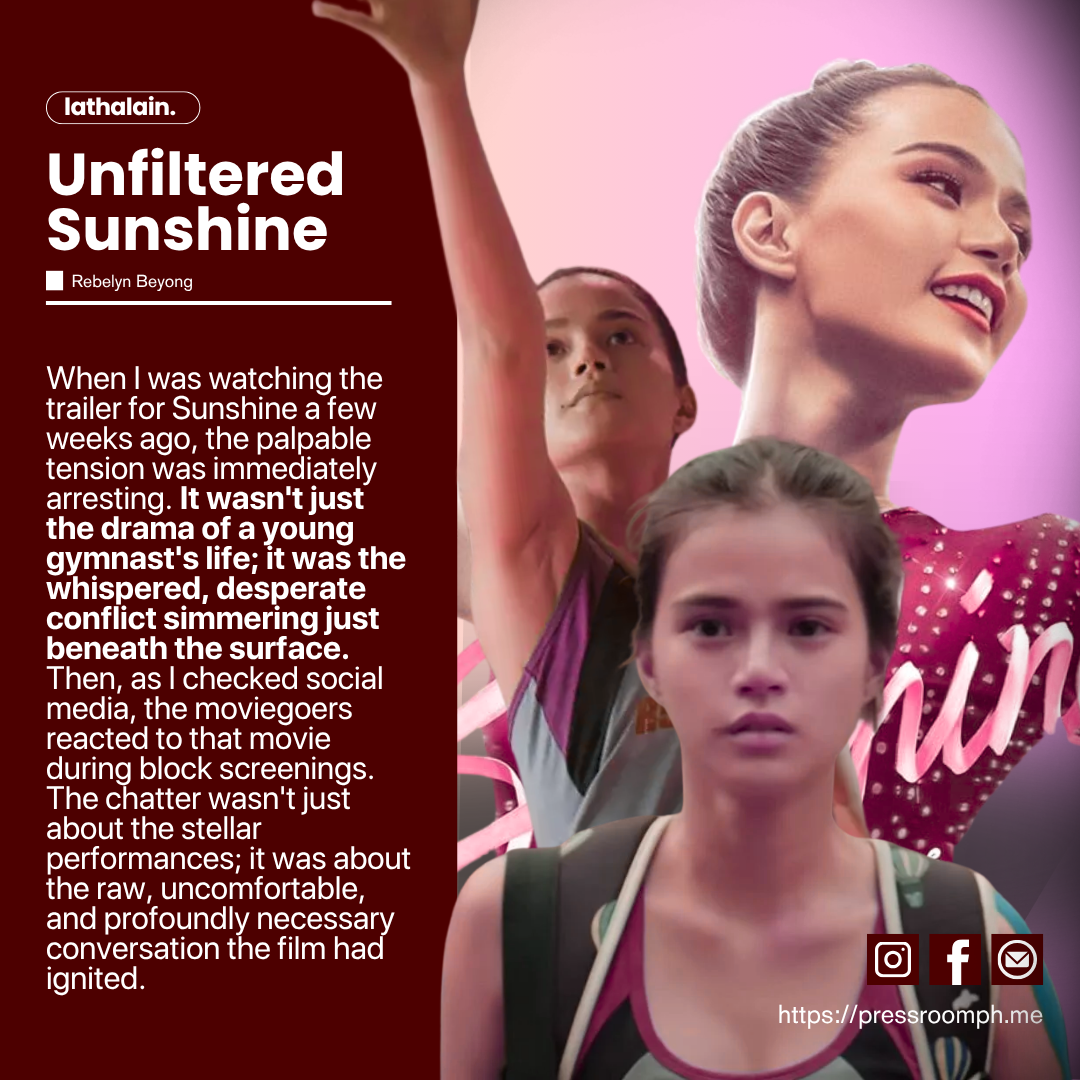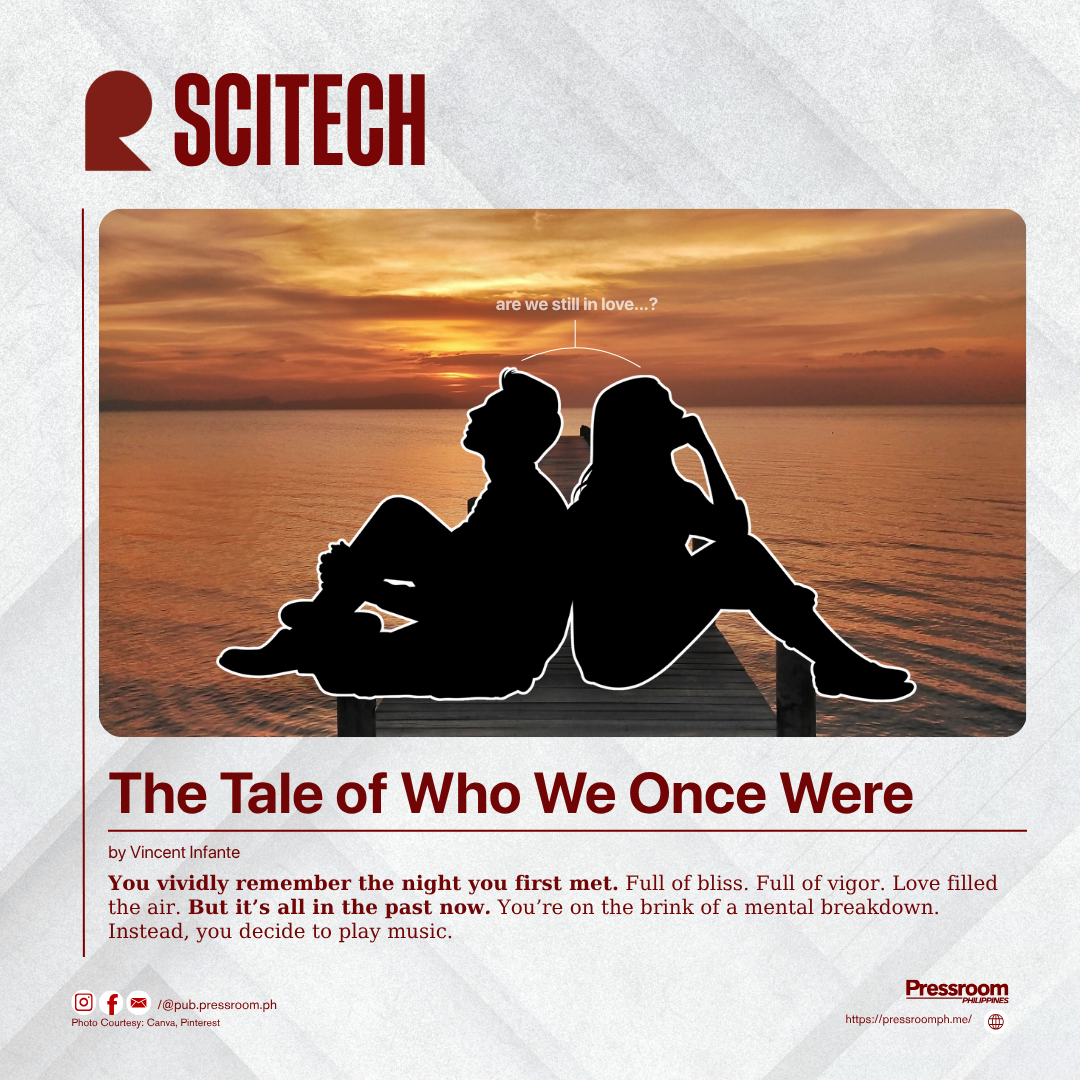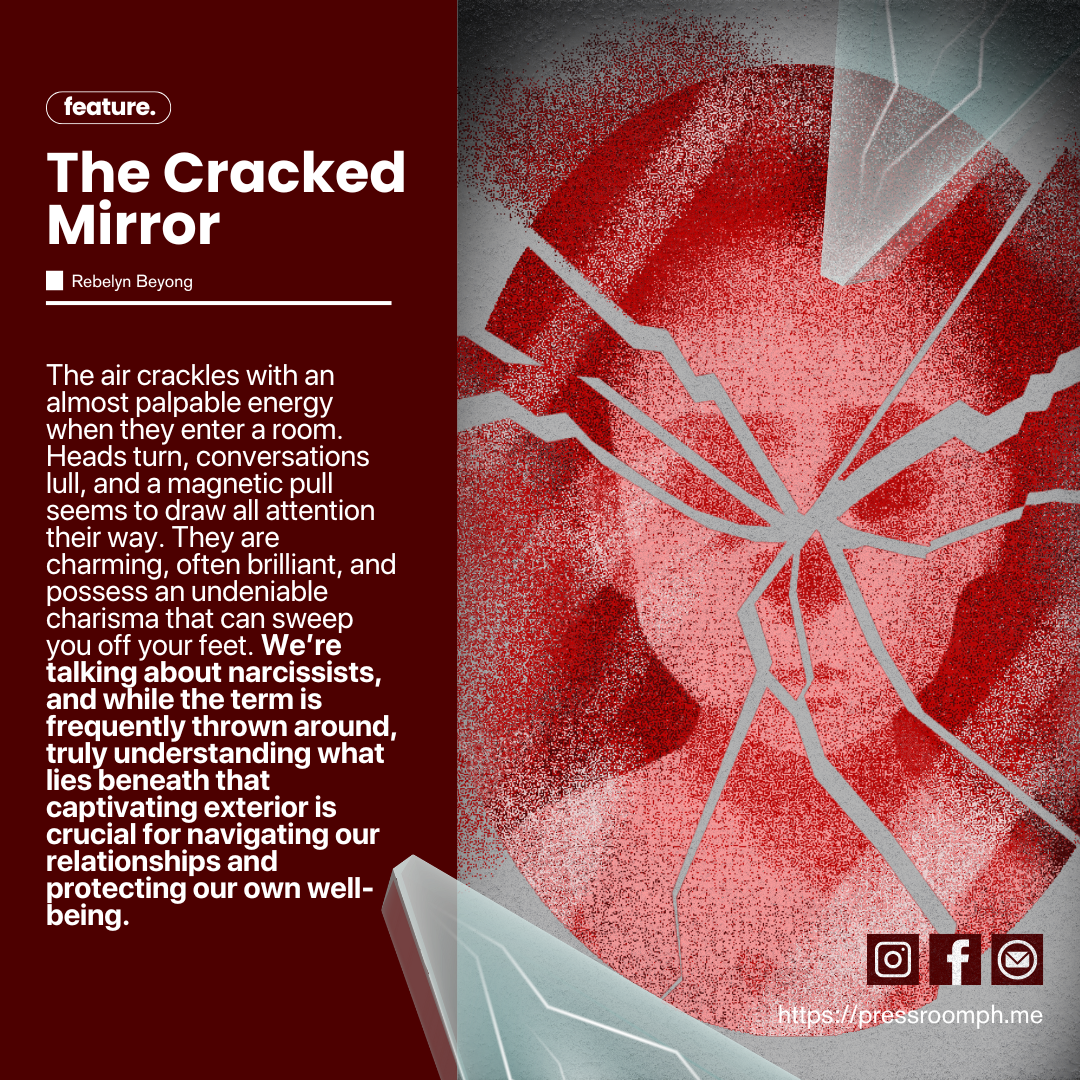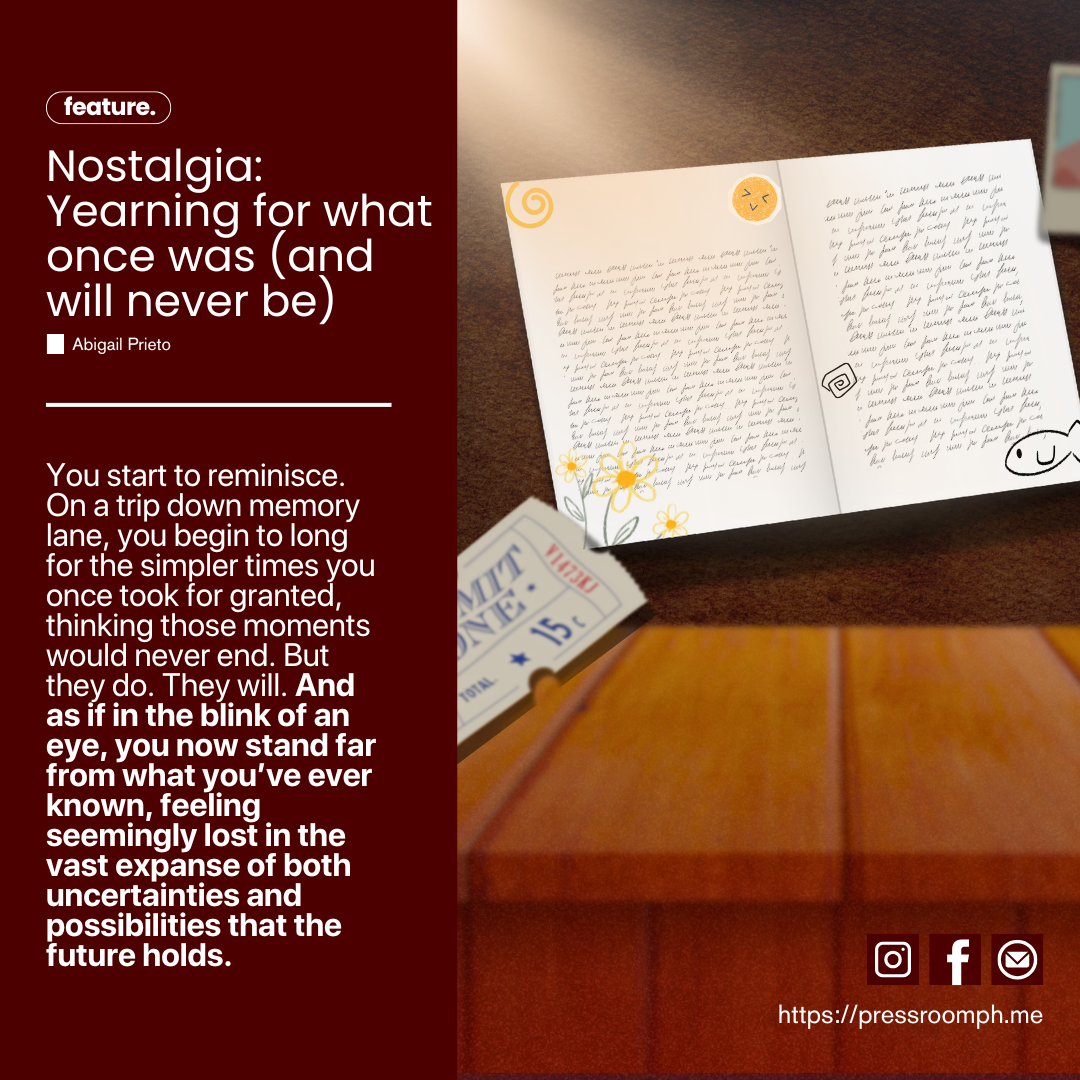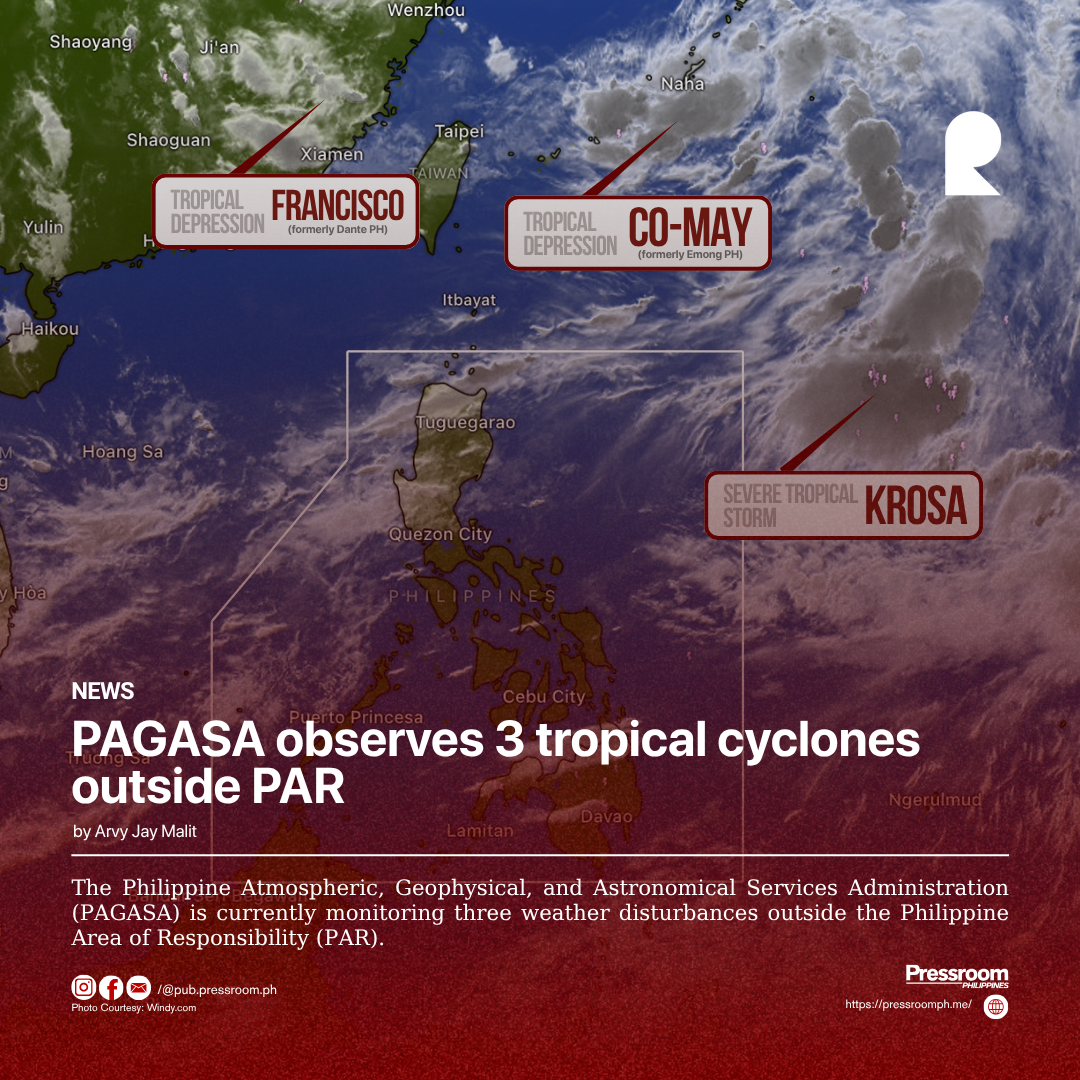via Rebelyn Beyong, Pressroom PH
When I was watching the trailer for Sunshine a few weeks ago, the palpable tension was immediately arresting. It wasn't just the drama of a young gymnast's life; it was the whispered, desperate conflict simmering just beneath the surface. Then, as I checked social media, the moviegoers reacted to that movie during block screenings. The chatter wasn't just about the stellar performances; it was about the raw, uncomfortable, and profoundly necessary conversation the film had ignited.
The film, starring the brilliant Maris Racal and directed by the internationally acclaimed Antoinette Jadaone, is more than just a cinematic offering; it's a mirror held up to a society grappling with a deeply divisive issue. Now showing in select cinemas across the Philippines, Sunshine is forcing a national reckoning on the subjects of abortion and women's rights.
The complicated beam
Sunshine follows the story of Sunshine (Racal), a promising young gymnast whose life is a delicate balance of rigorous training, familial expectations, and the first blushes of young love. Her world, meticulously constructed on the balance beam and uneven bars, is thrown into disarray by an unintended pregnancy. The film, which garnered international praise in some film festivals abroad like Toronto International Film Festival, Berlinale and New York Asian Film Festival doesn't present a simple narrative. Instead, Jadaone, known for her poignant and realistic portrayals of Filipino life, crafts a complex and deeply human story.
We see a young woman at a crossroads, her dreams of athletic glory and a brighter future suddenly shadowed by a life-altering choice. The film doesn't preach; it presents Sunshine's reality with unflinching honesty, capturing her fear, confusion, and the immense weight of her decision in a country where her options are not just limited, but criminalized. This is the core of the film's conflict: the collision of personal ambition, societal pressure, and a legal framework that offers little compassion.
The Silent Struggle
The central and most potent issue Sunshine lays bare is the silent, harrowing struggle surrounding abortion in the Philippines. In the film, Sunshine's journey is a clandestine one, filled with hushed conversations, furtive glances, and the palpable fear of being discovered. This cinematic portrayal is a stark reflection of reality. The Philippines remains one of the few countries in the world where abortion is illegal without any exceptions, criminalized under the Revised Penal Code of 1930. According to the Center for Reproductive Rights, this archaic law forces an estimated 1.26 million Filipino women to induce abortion in unsafe conditions annually.
The film masterfully depicts the societal-Gordian knot. On one side, there is the immense pressure from a predominantly Catholic nation where the sanctity of life from conception is a deeply ingrained doctrine. On the other, there is the lived reality of women like Sunshine—women with dreams, ambitions, and the fundamental right to bodily autonomy. The moviegoers' reactions I saw online echoed this tension. There were torrents of praise for the film's bravery, but also heated debates that mirrored the national divide. Sunshine doesn't just tell a story; it gives a face and a voice to the statistics. It forces the audience to move beyond abstract moral arguments and confront the human cost of restrictive laws.
We are made to ask difficult questions: Does a woman's right to her own body and future cease to exist upon conception? What does it say about a society that forces its young women into dangerous, life-threatening situations rather than providing them with safe and legal healthcare options? The film suggests that the absence of legal abortion does not eliminate it; it only eliminates safe abortion, pushing women into the shadows and into the hands of untrained practitioners, risking hemorrhage, infection, and death.
Igniting Dialogue
The true power of Sunshine lies in its ability to act as a catalyst. It has moved the discourse from the political arena and religious pulpits into cinemas and social media feeds. The block screenings became more than just movie viewings; they transformed into impromptu forums where audiences could process the film's heavy themes. The reactions were visceral because the story is real for so many. For every Sunshine on screen, there are thousands of young women in the Philippines facing the same impossible choice in silence.
Jadaone's direction is crucial to this impact. Her sensitive, non-judgmental lens allows the audience to empathize with Sunshine, regardless of their personal stance on abortion. The film doesn't offer easy answers. It doesn't tell you what to think. Instead, it implores you to feel. It is this empathetic approach that has earned it international acclaim, proving that the struggle for reproductive rights is a universal human story.
By focusing on the personal, Sunshine makes the political undeniable. It highlights the urgent need for a more compassionate and health-based approach to reproductive issues in the Philippines. As stated by the World Health Organization (WHO), restricting access to abortion does not reduce the number of abortions; however, it does affect whether the abortions that are performed are safe.
The film serves as a powerful piece of advocacy, not by shouting slogans, but by whispering a painful, human truth that can no longer be ignored. Sunshine is not just a film; it is a vital cultural moment, a beautifully crafted, heartbreaking plea for understanding, and a brave step forward in the long fight for women's rights in the Philippines. It is unfiltered, uncomfortable, and absolutely essential viewing.
